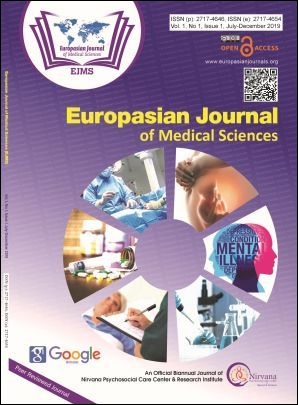Abuse Experienced by Elderly Residing in a Community of Pokhara, Nepal
Abstract
Background: Abuse of the elderly is a hidden problem in Nepalese community. Pokhara city is highly affected by urbanization, modernization and migration that predispose older adults to social isolation and financial difficulties increasing their risk to abuse. This study aims to fill the gap in the knowledge in the area of abuse of elderly in Pokhara city.
Objectives: The major objective of this study was to determine the prevalence of caregiver abuse experienced by the older adults and find out the factors associated with the abuse.
Method: A cross sectional study was used for the study. Convenience sampling technique was used and data was collected from 192 elderly above the age of 60 years residing a community of Pokhara-28, Kaski at their households using a structured interview schedule. Data was collected in June 2018, for a period of one month. Before data collection, informed written consent was taken from participants. The data was analyzed by using SPSS-16 and chi-square test was used as inferential statistics to determine the association between the elder abuse and selected variables.
Result: We found out that 65.6% of the elderly experienced at least one abuse in the last 6 months. The most common forms of abuse were caregiver neglect (55.2%) and psychological abuse (38.5%). The elderly abuse was statistically significant with female sex (p=0.001), unmarried/widow/widower/separated/divorced (p=.021), illiterate (p=0.002), and among those having chronic illness (p=0.003).
Conclusion: Almost 7 out of 10 elderly experienced abuse in the past 6 months. The most common form of abuse was caregiver neglect followed by psychological and financial abuse. Older adults who were females, unmarried/widowed/separated/divorced, illiterate and those having chronic disease were at higher risk for abuse.
Downloads
Downloads
Published
How to Cite
Issue
Section
License
The author(s) retain the ownership of the copyrights for their work published in EJMS without any restrictions. Upon submission, the author(s) grants EJMS a license to publish, including to display, store, copy, and reuse the published content.
License to Publish
By submitting a manuscript to EJMS, the author(s) grant the journal a non-exclusive license to:
- Publish and distribute the content in all formats, media, and platforms (both existing and future), while identifying EJMS as the original publisher.
- Reproduce, display, and store the content in both print and online formats, including institutional and digital repositories.
- Translate, adapt, and summarize the work, including reprints, extracts, and abstracts.
- Develop derivative works based on the original content.
- Include the work in electronic databases and provide links to third-party materials.
Creative Commons Licensing
In addition to EJMS’s publishing rights, authors grant third parties the right to use, share, and distribute their work under the Creative Commons Attribution 4.0 (CC BY 4.0) International License. This allows unrestricted use of the content, provided proper attribution is given to the original author(s) and the journal.

